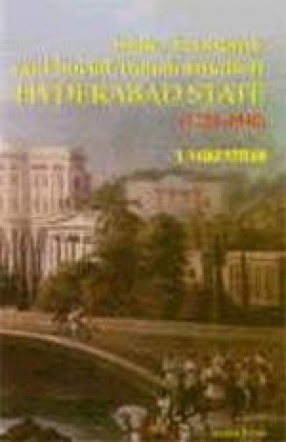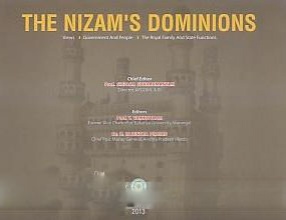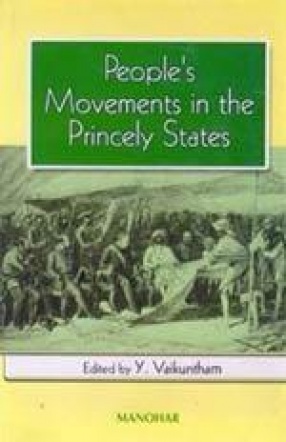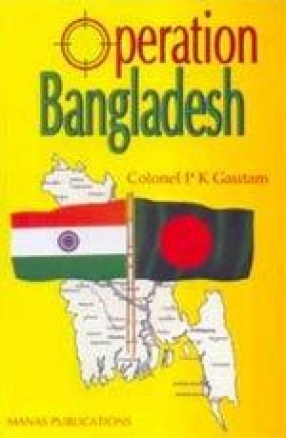The fall of Mughal imperial power and the rise of new regional powers along with the entry of Europeans as economic and political power in the eighteenth century heralded a new phase in the history of India. Asaf Jahi rule over Deccan with Hyderabad as capital was established in the eighteenth century. Hyderabad State was rich in human and natural resources and had all the requirements of a strong State. But it was predominantly feudal and autocratic and witnessed a stagnated and stunted growth. It was not administered properly both in economic and state craft. Growth of feudal institutions, lack of industrialization, trade and commerce kept the State economically backward compared to the Princely States of Mysore and Baroda or even British India. Attempts were made to transform its socio-economic institutions from the middle of the nineteenth century but the nature of the State and its society could not permit a radical departure from tradition. In this book, it is argued that economy suffered, feudal institutions continued, and therefore, the State could neither undergo rapid economic changes nor progress as a modern State. The impact of the indirect rule and the colonial policies affected the Hyderabad State in many fronts including economy. Further it is argued that the pre-capitalist subsistence agriculture, non-mechanized domestic industries, and lack of dynamic commercial activity were the dominant features of its economy. The prevalence of feudal institutions, land concentration, social inequalities and exploitation had a lot of bearing on socio-economic transformation and they were primarily responsible for its backwardness. The study reveals that ‘extra-economic compulsions’, and failure of the State to transform itself and the State developed unevenly.
State, Economy and Social Transformation: Hyderabad State (1724-1948)
$21.85
$23.00
In stock
Free & Quick Delivery Worldwide
All orders amounting to US$ 50 or more qualify for Free Delivery Worldwide. For orders less than US$ 50, we offer Standard Delivery at $14 per book.
ABOUT THE AUTHOR Y. Vaikuntham
Yallampalli Vaikuntham is a Professor of History and Dean, Faculty of Social Sciences, Osmania University, Hyderabad. He was a former Vice-Chancellor of Kakatiya University, Warangal. He has specialized in socio-economic and political History of Modern India with special reference to Andhra Pradesh, and south India. He has published 10 books which include Education and Social Change in South India: Andhra 1880-1920, (New Era Publications, Madras, 1982) and State, Economy and Social Transformation, Hyderabad State (1724-1948), (Manohar, 2002), People Movement in the Princely States, Manohar, New Delhi, 2004, Studies in Socio-Cultural and Political History: Modern Andhra (2004), Studies in Socio-Economic and Political History: Hyderabad State (2004). He is presently working on “History of Natural Resource Management in Hyderabad States: Telangana: 1724-1948â€. His research papers have been published in reputed journals like Journal of Indian History, Osmania Journal of Social Sciences, Osmania Journal off Historical Research, Proceedings of Indian History Congress, South Indian History Congress and Andhra Pradesh History Congress. His papers have been published in the Proceedings International Conferences on Historical and Cultural Relations between France and India XVII-XX Centuries, The French Revolution and the Colonial South India, in the volume on Bicentenary of French Revolution, both from University De La Re Union, France. He was a General Secretary (1986-89, 1994-98) and President of South Indian History Congress (1998). He visited foreign countries like England, America, Re-union, France, Germany, Malta, Japan, Singapore, Mauritius and Nepal. He served as a member UGC Subjects Committee; Member, Indian Council of Historical Research; Member UGC visiting teams of VII, VIII and IX Plans. He was on the Board of several universities of India.
reviews
0 in total
Review by Anonymous
Be the first to review “State, Economy and Social Transformation: Hyderabad State (1724-1948)” Cancel reply
You must be logged in to post a review.
Bibliographic information
Title
State, Economy and Social Transformation: Hyderabad State (1724-1948)
Author
Edition
1st Ed.
Publisher
ISBN
8173044414
Length
210p. Maps; Tables
Subjects
tags
#Hyderabadmore by Y. Vaikuntham see more
similar bookssee more
Half A Flight: Nuruddin’s Memoirs of His Master, Crown Prince Dara Shukoh, Son of Emperor Shah Jahan
"Half a Flight'' is the ...
$39.60
$44.00








There are no reviews yet.